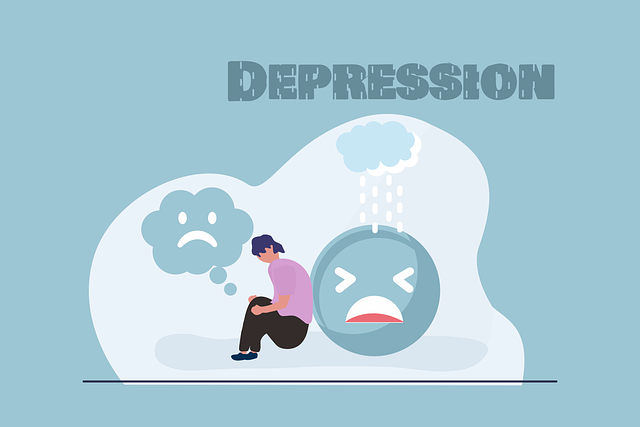Broomfield Children Therapy focuses on building resilience in children using the RFM framework (Recovery, Flexibility, Mastery). Through evidence-based techniques like mindfulness and communication skills, they teach stress management, emotional control, and self-efficacy. This holistic approach enhances well-being, fosters healthier relationships, and empowers kids to navigate challenges with grace. Using data and qualitative insights, Broomfield Children Therapy measures success in resilience-building, benefiting both individuals and the healthcare community by preventing burnout and promoting trauma support.
In today’s challenging world, fostering resilience in children is more crucial than ever. This article explores RFM (Resilience, Flexibility, and Mastery), a powerful framework that serves as a foundation for building emotional coping mechanisms in kids. We delve into the role of Broomfield Children Therapy, offering practical exercises to enhance resilience in daily life. Discover how these methods empower children to navigate stress and adversity, with a focus on measuring success through assessing the impact of resilience-building activities.
- Understanding RFM: A Foundation for Resilience in Kids
- The Role of Broomfield Children Therapy in Strengthening Emotional Coping Mechanisms
- Practical Exercises to Build Resilience in Daily Life
- How RFM Exercises Can Help Children Navigate Stress and Adversity
- Measuring Success: Assessing the Impact of Resilience Building Activities
Understanding RFM: A Foundation for Resilience in Kids

Resilience is a vital skill for children to develop, especially in today’s fast-paced and often stressful world. At Broomfield Children Therapy, we emphasize the importance of fostering resilience from an early age. RFM, or Recovery, Flexibility, and Mastery, is a powerful framework that serves as a foundation for building this essential quality.
By focusing on these three key aspects, kids learn effective stress management techniques, gain a sense of control over their emotions, and develop a strong sense of self-efficacy. Compassion cultivation practices play a significant role in this process, teaching children to be kinder to themselves and others. Additionally, confidence-boosting exercises empower them to face challenges head-on, ensuring they grow into resilient individuals capable of navigating life’s ups and downs with grace and perseverance.
The Role of Broomfield Children Therapy in Strengthening Emotional Coping Mechanisms

Broomfield Children Therapy plays a pivotal role in empowering young individuals to build resilience and develop effective emotional coping mechanisms. Through specialized programs and therapeutic approaches, they address the unique challenges faced by children, focusing on enhancing their self-esteem and fostering a sense of emotional well-being. By incorporating evidence-based techniques, the therapy helps kids navigate difficult emotions, build inner strength, and cultivate healthy ways to manage stress.
This therapeutic intervention goes beyond individual growth; it contributes significantly to public awareness campaigns aimed at promoting emotional well-being in children. By educating parents and caregivers on the importance of early emotional development, Broomfield Children Therapy ensures a supportive environment for kids to thrive. As a result, these exercises not only strengthen the individual but also have a positive impact on the broader community, fostering healthier and more resilient young people.
Practical Exercises to Build Resilience in Daily Life

Building resilience is an essential aspect of well-being, and incorporating practical exercises into daily routines can help individuals, especially children, navigate challenges more effectively. Broomfield Children’s Therapy offers valuable insights into fostering resilience through simple yet powerful strategies. One such approach involves encouraging mindfulness practices like deep breathing and meditation, which can improve mood management and reduce stress responses. By integrating these techniques into their lives, individuals learn to stay calm and focused during challenging situations.
Furthermore, enhancing communication skills is another vital component of resilience building. Effective communication strategies empower people to express their feelings and needs, fostering healthier relationships and promoting problem-solving abilities. This process can be as simple as practicing active listening or engaging in open dialogues with loved ones. Healthcare providers, in particular, can benefit from these techniques to prevent burnout by creating a supportive network around them and improving their overall well-being.
How RFM Exercises Can Help Children Navigate Stress and Adversity

Resilience-building exercises through RFM (Resourceful Feedback and Mastery) techniques can significantly aid children in navigating stress and adversity. These exercises are designed to help young individuals develop coping strategies, enhance self-awareness, and build mental resilience. By engaging in RFM activities, children learn to identify and utilize their strengths, resources, and previous successes when facing challenging situations. This process empowers them to respond to stress more adaptively rather than reacting impulsively.
Broomfield Children Therapy integrates these exercises into its programs, focusing on the holistic development of mental wellness coaching. The RFM approach encourages children to reframe failures as learning opportunities, fostering a growth mindset that is essential for building resilience. Additionally, trauma support services can benefit from this methodology, helping children process and overcome past traumatic experiences by providing them with effective tools to manage and overcome stress and adversity in their daily lives.
Measuring Success: Assessing the Impact of Resilience Building Activities

Measuring Success: Assessing the Impact of Resilience Building Activities
At Broomfield Children Therapy, we understand that assessing the effectiveness of resilience-building exercises is paramount to ensuring positive outcomes for our young clients. By integrating both quantitative and qualitative methods, we meticulously track progress and adapt strategies accordingly. This data-driven approach allows us to identify key areas of growth and tailor interventions to meet individual needs.
Through regular evaluations, we measure improvements in areas such as emotional regulation, coping mechanisms, and conflict resolution techniques. Additionally, tracking changes in clients’ positive thinking patterns and overall well-being provides valuable insights into the success of our resilience-building activities. This comprehensive assessment not only guides our practice but also serves as a resource for sharing effective burnout prevention strategies within the healthcare provider community.
Broomfield Children Therapy plays a pivotal role in empowering kids with resilience through effective RFM (Recovery, Flexibility, and Mastery) exercises. By integrating these strategies into daily routines, parents and caregivers can significantly enhance children’s emotional coping mechanisms, enabling them to navigate stress and adversity with greater ease. Measuring the success of these activities through observable improvements in behavior and emotional well-being ensures a comprehensive approach to building resilience, ultimately fostering a stronger, more resilient individual.














